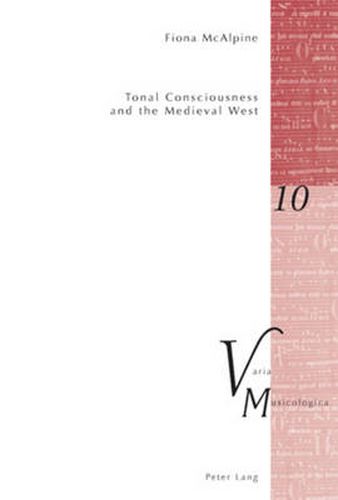Readings Newsletter
Become a Readings Member to make your shopping experience even easier.
Sign in or sign up for free!
You’re not far away from qualifying for FREE standard shipping within Australia
You’ve qualified for FREE standard shipping within Australia
The cart is loading…






This title is printed to order. This book may have been self-published. If so, we cannot guarantee the quality of the content. In the main most books will have gone through the editing process however some may not. We therefore suggest that you be aware of this before ordering this book. If in doubt check either the author or publisher’s details as we are unable to accept any returns unless they are faulty. Please contact us if you have any questions.
Tonal consciousness, in the sense of a clear intuition about which note or chord a piece of music will finish on, is as much a part of our everyday experience of music as it is of contemporary music theory. This book asks to what extent such tonal consciousness might have operated in the minds of musicians of the Middle Ages, given the different tone world found in the modes of Gregorian chant, in troubadour and trouvere music, in Minnesang and in the early polyphony based upon chant. The author’s approach is analytical, focusing on modality and balancing up-to-date concepts and methods of music analysis with those insights into their own compositional needs and processes that the people of the Middle Ages provided themselves through their writings about music. The book examines a range of both music sources and theoretical sources from the ninth to the thirteenth centuries. This is a ground-breaking contribution both to the study of medieval music and to music analysis.
$9.00 standard shipping within Australia
FREE standard shipping within Australia for orders over $100.00
Express & International shipping calculated at checkout
This title is printed to order. This book may have been self-published. If so, we cannot guarantee the quality of the content. In the main most books will have gone through the editing process however some may not. We therefore suggest that you be aware of this before ordering this book. If in doubt check either the author or publisher’s details as we are unable to accept any returns unless they are faulty. Please contact us if you have any questions.
Tonal consciousness, in the sense of a clear intuition about which note or chord a piece of music will finish on, is as much a part of our everyday experience of music as it is of contemporary music theory. This book asks to what extent such tonal consciousness might have operated in the minds of musicians of the Middle Ages, given the different tone world found in the modes of Gregorian chant, in troubadour and trouvere music, in Minnesang and in the early polyphony based upon chant. The author’s approach is analytical, focusing on modality and balancing up-to-date concepts and methods of music analysis with those insights into their own compositional needs and processes that the people of the Middle Ages provided themselves through their writings about music. The book examines a range of both music sources and theoretical sources from the ninth to the thirteenth centuries. This is a ground-breaking contribution both to the study of medieval music and to music analysis.